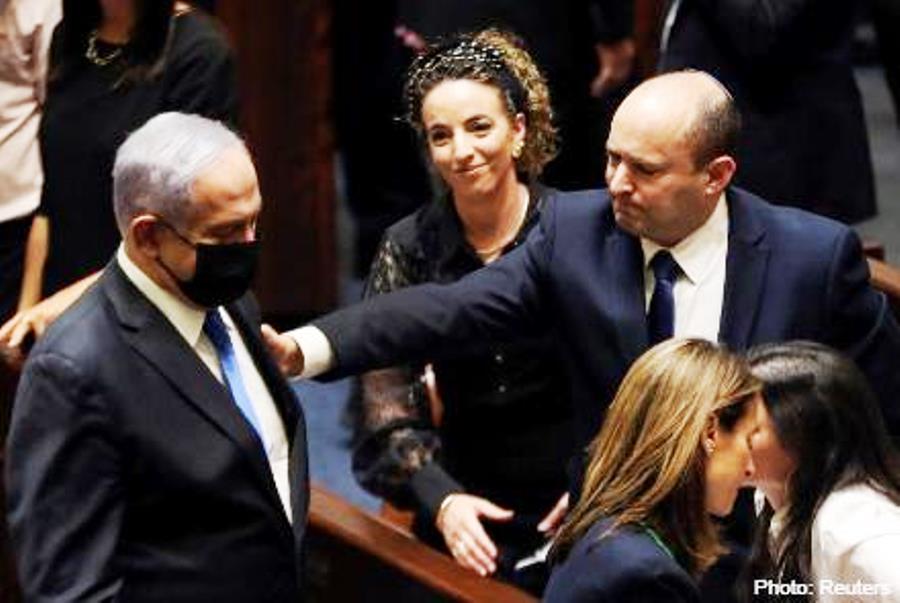Benjamin Netanyahu’s record 12-year run as Israel’s prime minister ended on Sunday with parliament approving a new “government of change” led by nationalist Naftali Bennett, an improbable scenario few Israelis once could have imagined.
But the razor-thin 60-59 vote of confidence in a coalition of left-wing, centrist, right-wing and Arab parties with little in common except a desire to unseat Netanyahu, only underscored its likely fragility.
In Tel Aviv, thousands turned out to welcome the result, after four inconclusive elections in two years.
“I am here celebrating the end of an era in Israel,” said Erez Biezuner in Rabin Square. “We want them to succeed and to unite us again,” he added, as flag-waving supporters of the new government sang and danced around him.
But a combative Netanyahu, 71,said he would be back sooner than expected. “If we are destined to go into the opposition, we will do so with our heads held high until we can topple it,” he told parliament before Bennett was sworn in.
The new government largely plans to avoid sweeping moves on hot-button international issues such as policy toward the Palestinians, and to focus instead on domestic reforms.
Palestinians were unmoved by the change of administration, predicting that Bennett, a former defence chief who advocates annexing parts of the occupied West Bank, would pursue the same right-wing agenda as Likud party leader Netanyahu.
Under the coalition deal, Bennett, a 49-year-old Orthodox Jew and high-tech millionaire, will be replaced as prime minister in 2023 by centrist Yair Lapid, 57, a popular former television host.
With his far-right Yamina party winning only six of parliament’s 120 seats in the last election, Bennett’s ascension to the premiership was a political jaw-dropper.
Interrupted by non-stop shouts of “liar” and “shame” from Netanyahu loyalists in parliament, Bennett thanked the former prime minister for his “lengthy and achievement-filled service.”
But little love has been lost between the two men: Bennett once served as Netanyahu’s chief of staff and had a rocky relationship with him as defence minister. Although they are both right-wingers, Bennett spurned Netanyahu’s call after the March 23 election to join him.











